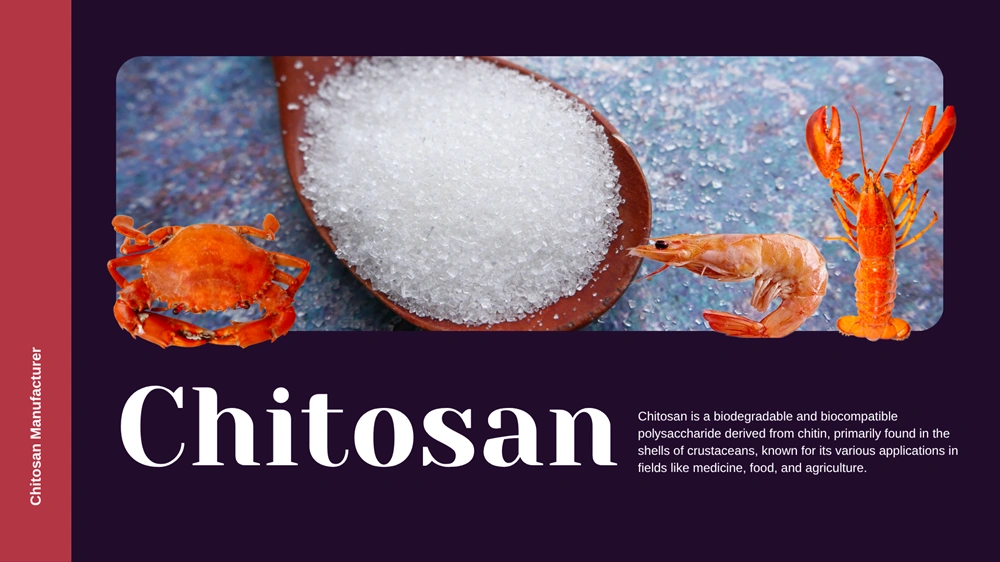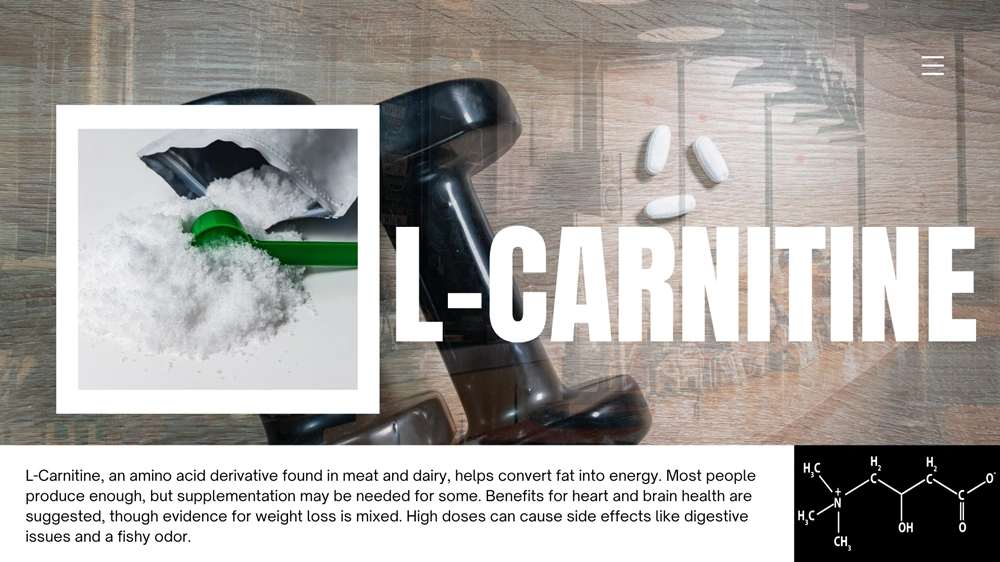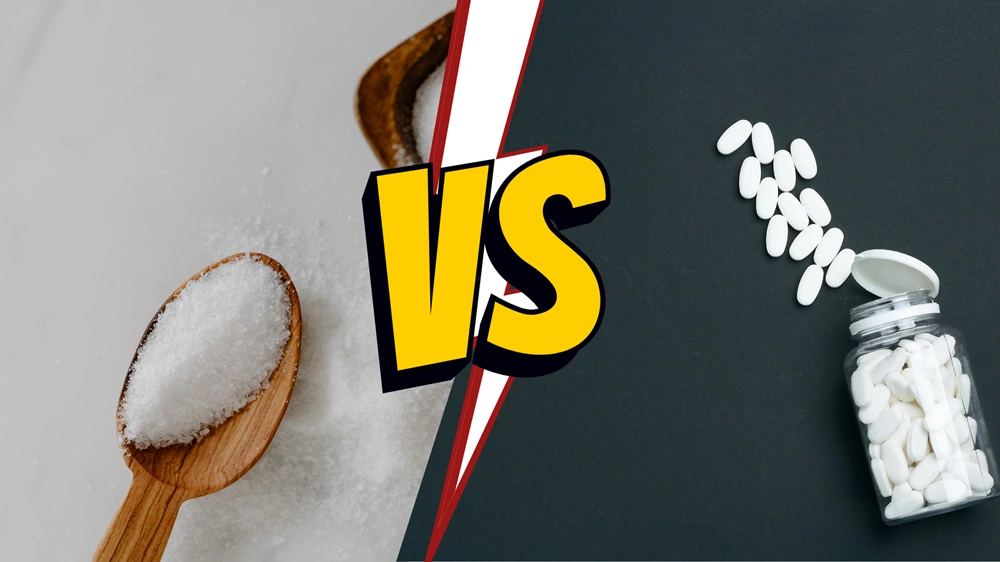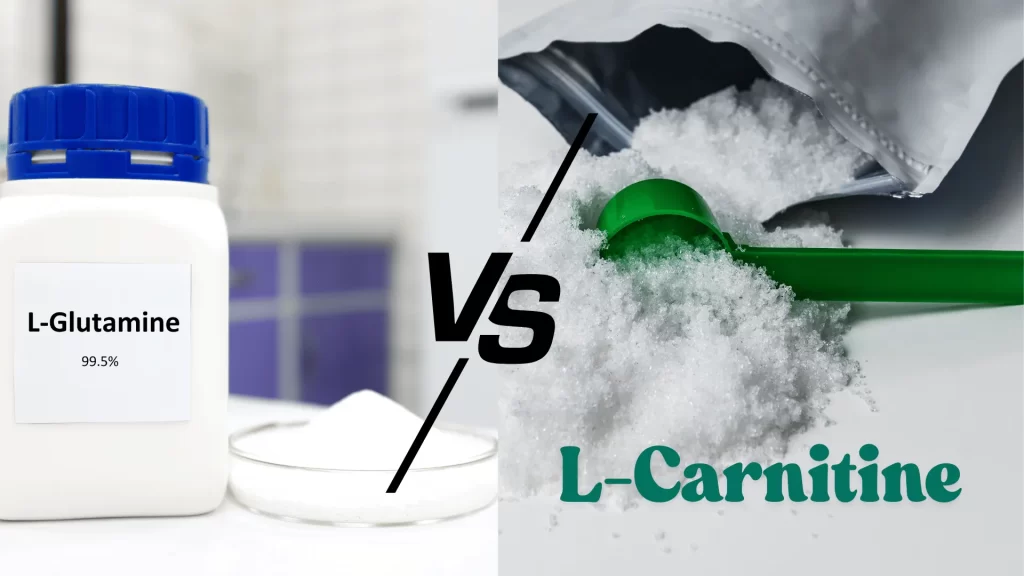Chitosan vs L-Carnitine: Picture yourself standing in the supplement aisle, shelves brimming with bottles promising a slimmer you. Two names catch your eye: chitosan and L-carnitine. You’ve heard whispers about their weight loss powers, but what are they, really? Are they the secret weapon you’ve been searching for, or just another overhyped trend? Let’s dive into the world of these two popular dietary supplement ingredients, unpack what they do, how they differ, and whether they’re worth your time and money. Spoiler alert: the journey to a healthier you might not hinge on a pill, but we’ll get to that.
What is Chitosan?

Chitosan is like a sponge for fat, or so the story goes. It’s a natural fiber derived from chitin, a substance found in the hard shells of crustaceans like shrimp, crabs, and lobsters. Through a process called deacetylation, chitin is transformed into chitosan, which is then packaged into supplements, often in powder or capsule form through advanced powder manufacturing techniques. The big claim? Chitosan binds to dietary fats in your digestive system, preventing your body from absorbing them, which could mean fewer calories stored as fat. Sounds like a dream for anyone watching their waistline, right?
But here’s where it gets real. Studies on chitosan’s weight loss effects are a mixed bag. A 2018 meta-analysis of 14 studies with over 1,000 participants found that chitosan, when paired with a calorie-restricted diet and exercise, led to a modest weight loss of about 1 kg over several weeks compared to a placebo group, which actually gained 1.5 kg in some cases . That’s something, but it’s not exactly life-changing. Another study from 2014 suggested that combining chitosan with vitamin C might boost its effects slightly, but the weight loss was still minimal .
Beyond weight loss, chitosan has other tricks up its sleeve. It’s been shown to lower total and LDL (“bad”) cholesterol in some trials, which could make it a player in heart health . It’s also used in joint health supplements due to its potential anti-inflammatory properties, helping to protect cartilage in conditions like osteoarthritis . But for weight loss, the evidence is shaky, and it’s not a standalone solution. Plus, if you’re allergic to shellfish, chitosan is off the table—sorry, no seafood-derived supplements for you.
Chitosan isn’t perfect. Some folks report bloating, constipation, or gas after taking it. It might also block the absorption of fat-soluble vitamins like A, D, E, and K, which could be a problem if you’re not eating a balanced diet . So, while chitosan sounds like a clever fat-trapper, its real-world impact might leave you wanting more.
What is L-Carnitine?

Now, let’s talk about L-carnitine, the body’s own fat-burning shuttle bus. This compound is naturally produced in your liver and kidneys from two amino acids, lysine and methionine. Its job? To ferry long-chain fatty acids into your cells’ mitochondria—think of these as tiny power plants where fats are burned to create energy. Because of this role, L-carnitine is a darling in the fitness world, often found in custom formulas for weight loss supplement manufacturing, promising to boost fat-burning and enhance exercise performance.
The science on L-carnitine is a bit more encouraging than on chitosan. A 2020 meta-analysis of 37 randomized controlled trials with over 2,200 participants found that L-carnitine supplementation led to an average weight loss of 1.21 kg, a slight drop in BMI, and a reduction in fat mass by about 2.08 kg, especially in people with overweight or obesity . Another review in 2021 showed similar results in people with type 2 diabetes, with 2 grams daily for at least two weeks promoting modest weight loss . The catch? These benefits are most noticeable when you pair L-carnitine with exercise, as it helps your body use fat for fuel during workouts.
L-Carnitine doesn’t stop at weight loss. It’s been linked to improved heart health, reducing inflammation and blood pressure in some studies, and even helping with exercise recovery by sparing glycogen stores . Athletes love it for that extra edge in endurance and performance. But it’s not flawless—high doses (above 2 grams daily) can cause nausea, diarrhea, or a fishy body odor in rare cases . Unlike chitosan, it’s safe for those with shellfish allergies, making it a more accessible option.
Chitosan vs L-Carnitine: What’s the Difference?

So, how do these two stack up? Let’s break it down to the nitty-gritty. Chitosan and L-carnitine tackle weight loss from completely different angles, and understanding these differences can help you decide which (if either) fits your goals.
Mechanisms of Action
Chitosan works outside the body, in your gut. It’s like a bouncer at a club, stopping some of the fat from your meal from getting in and being absorbed. You take it with meals, and it supposedly traps dietary fats, which are then excreted rather than stored. L-Carnitine, on the other hand, is an inside job. It’s like a delivery driver, shuttling fats into your cells’ mitochondria to be burned for energy. This makes L-carnitine particularly useful during exercise, when your body needs that extra fuel.
Effectiveness for Weight Loss
When it comes to shedding pounds, L-carnitine seems to have the upper hand, though neither is a game-changer. The 2018 meta-analysis on chitosan showed a modest 1 kg weight loss, but many studies were of low quality, and the results weren’t always consistent . Some researchers even argue that chitosan’s effects are too small to matter in the long run . L-Carnitine, however, has more robust evidence. The 2020 meta-analysis found a statistically significant reduction in body weight and fat mass, with the best results at doses around 2 grams per day . Still, the weight loss is modest, and you’re not going to drop dress sizes overnight.
Here’s a quick comparison:
| Feature | Chitosan | L-Carnitine |
|---|---|---|
| Source | Shells of crustaceans | Synthesized from amino acids |
| Mechanism | Binds to dietary fats | Transports fatty acids for energy |
| Effectiveness | ~1 kg weight loss (with diet) | ~1.21 kg weight loss (with exercise) |
| Side Effects | GI discomfort, allergies | Nausea, diarrhea at high doses |
| Best Used With | Calorie-restricted diet, exercise | Exercise, especially before |
Side Effects and Precautions
Both supplements come with caveats. Chitosan can cause digestive issues like bloating or constipation, and it’s a no-go for anyone with a shellfish allergy . It might also interfere with medications like blood thinners or reduce nutrient absorption, so talk to your doctor if you’re on meds or have dietary concerns. L-Carnitine is generally safer, with mild side effects at high doses, but it can interact with certain medications, like those for thyroid conditions . Always check with a healthcare provider before diving in.
Other Benefits
Chitosan isn’t just about weight loss. Its ability to lower cholesterol and support joint health ingredients makes it a versatile player in the supplement world . L-Carnitine shines in exercise performance and heart health, with studies suggesting it can reduce fatigue and improve cardiovascular markers . If you’re looking for a supplement that does more than just target weight, these additional benefits might sway your choice.
Which One Should You Choose?
So, you’re standing at the crossroads: chitosan or L-carnitine? It depends on your lifestyle and health needs. If you’re someone who eats a high-fat diet and wants to block some of that fat absorption, chitosan might be worth a try—provided you’re not allergic to shellfish. But its effects are small, and you’ll need to pair it with a healthy diet to see any results. If you’re active and looking to boost fat-burning during workouts, L-carnitine could be your go-to, especially since it’s backed by stronger evidence and fits into many weight loss supplement manufacturing formulas.
Here’s a question to ask yourself: How committed are you to lifestyle changes? Neither supplement works miracles. If you’re not ready to tweak your diet or hit the gym, you might not see much benefit from either. And if you’re on medications or have health conditions, a chat with your doctor is non-negotiable. They can help you navigate potential interactions and ensure you’re choosing a supplement that aligns with your goals.
For those curious about combining the two, there’s no clear evidence on whether they work better together, but there’s also no major red flag against it. Just don’t expect double the results—your wallet might feel lighter before your body does.
FAQs
What is better than L-carnitine?
No single supplement is universally “better” than L-carnitine; it depends on the goal. For fat metabolism, conjugated linoleic acid (CLA) or green tea extract may be alternatives. For heart health, CoQ10 or omega-3s may be more effective. Consult a doctor for personalized advice.
What is the best form of L-carnitine for the heart?
Propionyl-L-carnitine (PLC) is considered best for heart health due to its role in improving blood flow and energy production in cardiac tissue.
Is L-carnitine the best fat burner?
No, L-carnitine aids fat metabolism but isn’t the most effective fat burner alone. It works best with exercise and a calorie deficit. Other supplements like caffeine or green tea extract may be more potent for fat loss.
What does chitosan do in the body?
Chitosan, a fiber derived from chitin (found in crustacean shells), binds to dietary fats and cholesterol in the digestive tract, reducing their absorption. It may also support gut health by acting as a prebiotic.
What does chitosan do for kidneys?
Chitosan may help reduce phosphorus and cholesterol levels in the blood, potentially easing kidney strain in chronic kidney disease patients. It binds phosphorus in the gut, limiting absorption, but evidence is limited.
Conclusion
In the battle of chitosan vs L-carnitine, both supplements offer a glimmer of hope for weight loss, but neither is a silver bullet. Chitosan’s fat-blocking powers sound appealing, but its effects are modest and inconsistent. L-Carnitine, with its fat-burning boost, has a slight edge, especially for active folks, but it’s still no substitute for the real MVPs: a balanced diet and regular exercise. As the supplement industry grows, with innovations in packaging services and custom formulas, it’s tempting to pin your hopes on a pill. But sustainable weight loss comes from lifestyle changes, not shortcuts. So, weigh your options, talk to a professional, and take that first step toward a healthier you—supplement or no supplement.
References
- Moraru, C., et al. (2018). A Meta-Analysis on Randomised Controlled Clinical Trials Evaluating the Effect of the Dietary Supplement Chitosan on Weight Loss, Lipid Parameters and Blood Pressure. Medicina, 54(6), 109. https://www.mdpi.com/1648-9144/54/6/109
- Healthline. (2021). What Is Chitosan? Uses, Benefits, Side Effects, and Dosage. https://www.healthline.com/nutrition/chitosan-supplements
- Hoemann, C. (2017). Using Chitosan to Combat Osteoarthritis and Aging Cartilage. Polytechnique Montréal. https://www.polymtl.ca/salle-de-presse/en/newsreleases/using-chitosan-combat-osteoarthritis-and-aging-cartilage-complex-sugar-can-reduce-inflammation
- WebMD. (2023). Chitosan: Overview, Uses, Side Effects, Precautions. https://www.webmd.com/vitamins/ai/ingredientmono-625/chitosan
- Askarpour, M., et al. (2020). Effects of L-Carnitine Supplementation on Weight Loss and Body Composition: A Systematic Review and Meta-Analysis. Clinical Nutrition ESPEN, 37, 9-23. https://www.sciencedirect.com/science/article/abs/pii/S240545772030053X
- Healthline. (2024). L-Carnitine: Benefits, Side Effects, Sources, and Dosage. https://www.healthline.com/nutrition/l-carnitine
- Verywell Health. (2025). L-Carnitine Benefits, Sources, and Side Effects. https://www.verywellhealth.com/l-carnitine-7484096
- WebMD. (2023). L-Carnitine: Overview, Uses, Side Effects, Precautions. https://www.webmd.com/vitamins/ai/ingredientmono-1026/l-carnitine

